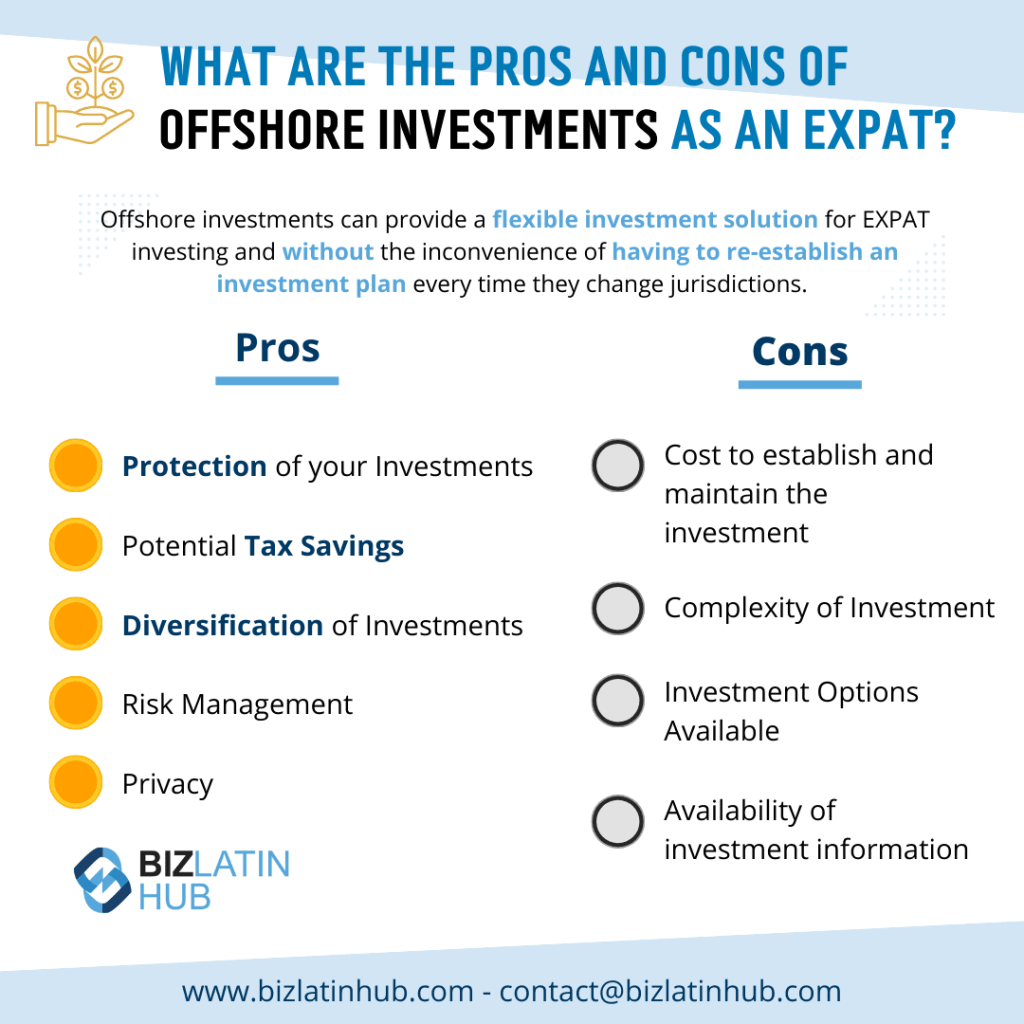Everything About Offshore Financial Investment: Insights Into Its Benefits and Considerations
Offshore financial investment has come to be a progressively pertinent topic for individuals looking for to diversify their profiles and enhance monetary protection. While the potential advantages-- such as tax obligation optimization and asset defense-- are engaging, they include a complicated landscape of threats and regulative obstacles that call for careful factor to consider. Comprehending both the benefits and the pitfalls is necessary for anyone contemplating this financial investment strategy. As we check out the nuances of overseas financial investment, it comes to be evident that notified decision-making is essential for optimizing its possible advantages while mitigating intrinsic threats. What variables should one prioritize in this intricate environment?
Understanding Offshore Investment
In the world of worldwide money, understanding overseas financial investment is critical for people and entities looking for to enhance their financial profiles. Offshore investment describes the placement of assets in banks outside one's nation of home. This practice is commonly used to achieve various monetary objectives, including diversification, possession protection, and possible tax obligation advantages.
Offshore investments can incorporate a broad array of economic tools, including supplies, bonds, shared funds, and property. Capitalists might choose to develop accounts in jurisdictions recognized for their desirable regulative atmospheres, privacy legislations, and economic stability.
It is necessary to identify that overseas financial investment is not naturally synonymous with tax obligation evasion or immoral activities; instead, it offers genuine objectives for numerous investors. The motivations for taking part in offshore investment can vary widely-- from looking for greater returns in developed markets to safeguarding possessions from political or economic instability in one's home country.

Nevertheless, prospective financiers must additionally understand the complexities entailed, such as compliance with global laws, the necessity of due diligence, and comprehending the lawful implications of offshore accounts. Generally, a thorough understanding of offshore investment is crucial for making informed economic choices.
Key Benefits of Offshore Financial Investment
Offshore financial investment supplies a number of essential advantages that can improve an investor's financial technique. This can considerably increase total returns on investments.
In addition, overseas financial investments frequently supply access to a wider series of financial investment opportunities. Capitalists can expand their profiles with possessions that might not be readily available in their home countries, consisting of global supplies, genuine estate, and specialized funds. This diversification can lower danger and enhance returns.

Moreover, overseas financial investments can promote estate preparation. They allow financiers to structure their assets in a manner that minimizes inheritance tax and guarantees a smoother transfer of wealth to heirs.
Typical Threats and Challenges
Buying overseas markets can provide different dangers and obstacles that call for cautious consideration. One significant danger is market volatility, as overseas investments may undergo fluctuations that can impact returns drastically. Investors have to likewise be conscious of geopolitical instability, which can disrupt markets and effect financial investment efficiency.
Another difficulty is currency danger. Offshore investments commonly entail purchases in foreign currencies, and unfavorable exchange rate movements can wear down revenues or boost losses. Offshore Investment. In addition, restricted accessibility to trusted details regarding overseas markets can impede educated decision-making, causing prospective errors
Absence of regulative oversight in some overseas territories can likewise position risks. Capitalists might locate themselves in atmospheres where financier protection is marginal, raising the threat of scams or mismanagement. Varying financial methods and cultural mindsets toward investment can complicate the financial investment process.
Governing and legal Considerations
While navigating the complexities of offshore financial investments, recognizing the regulatory and lawful landscape is essential for making certain and securing possessions compliance. Offshore financial investments are frequently based on a wide range of guidelines and laws, both in the financier's home country and the territory where the investment is made. Therefore, it is necessary to conduct detailed due diligence to comprehend the tax ramifications, reporting requirements, and any legal responsibilities that may develop.
Governing structures can vary considerably in between territories, impacting whatever from taxes to resources requirements read review for foreign investors. Some nations might offer beneficial tax obligation regimens, while others enforce rigorous regulations that could discourage financial investment. In addition, international contracts, such as FATCA (International Account Tax Compliance Act), may obligate investors to report overseas holdings, boosting the demand for openness.
Capitalists have to additionally be aware of anti-money laundering (AML) and know-your-customer (KYC) regulations, which need banks to validate the identification of their customers. Non-compliance can result in severe penalties, consisting of penalties and constraints on financial investment activities. Involving with legal professionals specializing in international investment regulation is critical to browse this elaborate landscape successfully.
Making Informed Decisions
A critical approach is crucial for making notified decisions in the world of offshore financial investments. Understanding the intricacies included requires thorough research study and analysis of various factors, consisting of market fads, tax obligation ramifications, and lawful frameworks. Capitalists have to analyze their danger resistance and investment goals, ensuring placement with the distinct characteristics of overseas opportunities.
Performing due diligence is vital. This involves examining the integrity of organizations, economic advisors, and investment lorries. Scrutinizing the governing environment in the selected territory is check over here crucial, as it can significantly influence the safety and security and success of financial investments. Additionally, staying abreast of economic problems and geopolitical growths can offer useful understandings that educate investment approaches.
Engaging with specialists that specialize in overseas financial investments can additionally boost decision-making. Offshore Investment. Their know-how can lead capitalists via the intricacies of global markets, aiding to determine prospective mistakes and profitable chances
Inevitably, notified decision-making in offshore investments hinges on a versatile understanding of the landscape, a clear expression of private objectives, and a dedication to continuous education and adaptation in a vibrant worldwide environment.
Verdict
In final thought, overseas financial investment offers considerable advantages such as tax obligation optimization, possession security, and accessibility to worldwide markets. By resolving these factors to consider, investors can properly harness the advantages of overseas investments while minimizing prospective downsides, eventually leading to informed and tactical economic choices.
Offshore financial investment offers several essential benefits that can enhance a capitalist's economic strategy.Additionally, offshore investments typically give access to a broader range of investment opportunities. Differing financial methods and social mindsets towards investment check my source can complicate the investment process.
